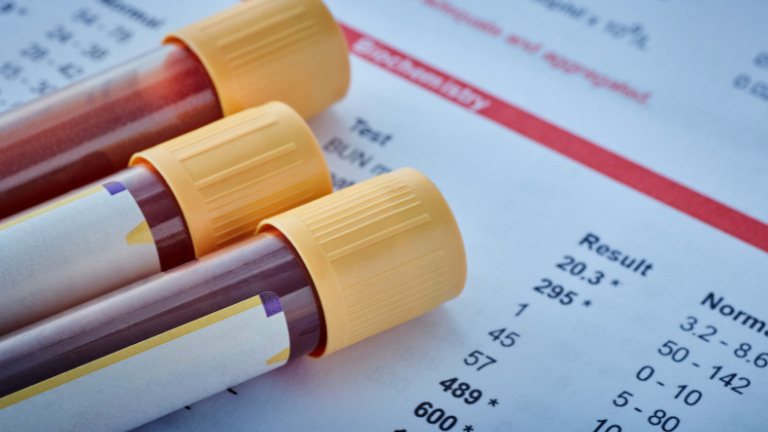
A full blood profile is considered the best blood test for a variety of reasons.
It is a comprehensive blood test that evaluates the various components of your blood, including red and white blood cells, platelets, haemoglobin, and hematocrit levels. This type of test can provide valuable insight into a patient’s overall health and can help detect a range of disorders and conditions.
A full blood profile is especially valuable for routine annual check-ups as it provides an overall picture of the patient’s health. It can also be used to identify potential underlying issues that may not have been detected otherwise. The accuracy and specificity of this type of test are superior to other forms of blood tests, making it the preferred choice for many medical professionals.
For example, if a doctor suspects anaemia in a patient, they may order a full blood profile to confirm their diagnosis. This type of test will provide more detailed information than other types of tests such as iron studies or haemoglobin electrophoresis, which only measure certain components in the blood. Additionally, if someone has symptoms that could indicate multiple conditions such as liver disease or diabetes, a full blood profile can help narrow down the possible causes by providing more comprehensive results than other types of tests.
Important Blood Tests
Blood Tests for Organ Function
Organ function tests measure the levels of certain substances in the blood that can indicate how well organs such as the liver or kidneys are working. Commonly ordered organ function tests include:
- Liver Function Tests (LFT): These tests measure the levels of proteins, enzymes, and bilirubin in the blood which can indicate liver damage or disease.
- Kidney Function Tests (KFT): These tests measure creatinine and urea levels in the blood which can indicate kidney damage or disease.
- Electrolyte Tests: These tests measure electrolyte levels such as sodium, potassium, chloride, and bicarbonate in the blood which can indicate dehydration or electrolyte imbalance.
Tests for Infectious Diseases
Infectious disease tests check for antibodies that your body produces when it is exposed to certain viruses or bacteria. Commonly ordered infectious disease tests include:
- HIV Test: This test checks for antibodies against HIV (the virus that causes AIDS). It is usually done via a simple finger prick test but may also involve drawing a sample of blood from a vein in your arm.
- Hepatitis B Test: This test checks for antibodies against hepatitis B virus (HBV) which can cause serious liver damage if left untreated. It is usually done via a simple finger prick test but may also involve drawing a sample of blood from a vein in your arm.
- Syphilis Test: This test checks for antibodies against Treponema pallidum bacteria which causes syphilis infection if left untreated. It is usually done via a simple finger prick test but may also involve drawing a sample of blood from a vein in your arm.
Blood Tests for Chronic Illnesses
Chronic illness tests measure specific substances in the blood that are associated with particular conditions such as diabetes or cancer. Commonly ordered chronic illness tests include:
- Diabetes Test: This test measures glucose levels in the blood which can indicate diabetes if they remain high over time. It is usually done via a simple finger prick test but may also involve drawing a sample of blood from a vein in your arm.
- Cancer Markers Test: This test measures specific proteins called tumor markers that are associated with certain types of cancer such as breast cancer or prostate cancer if their levels remain elevated over time. It involves drawing a sample of blood from a vein in your arm and sending it to the lab for analysis.
Overall, a full blood profile is considered to be one of the best ways to evaluate someone’s health due to its accuracy and specificity compared to other forms of testing. It provides an overall picture that can help detect potential underlying issues while also being useful for routine check-ups.



Getting a full blood profile as part of my routine annual check-up was definitely worth it. The results provided me with a detailed picture of my health, giving me peace of mind knowing that potential problems can be detected early. It’s an essential test that I’ll continue to prioritize.